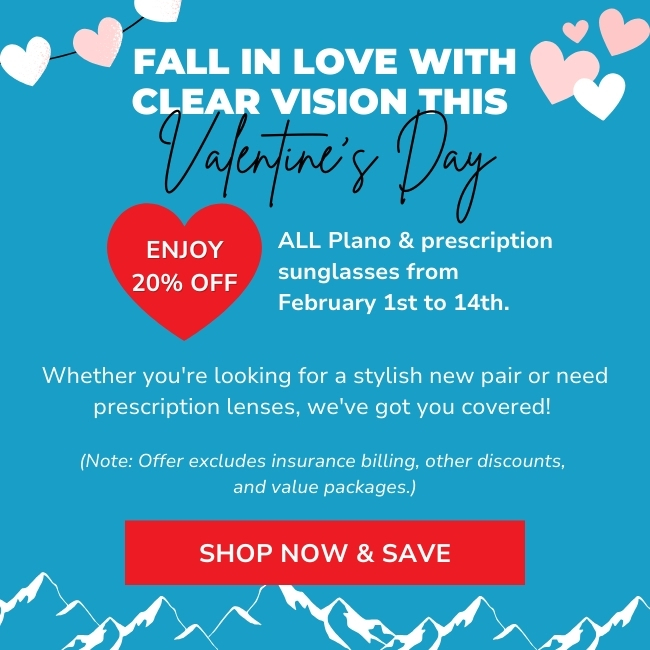Eye health is often shrouded in myths and misconceptions that have been perpetuated over time. While some of these notions are harmless, they can also lead to misguided decisions about vision care.
Understanding the reality behind these myths is crucial for maintaining good eye health. In this blog, we’ll debunk some of the most prevalent myths about your eyes, empowering you to make informed choices for your vision care.
Myth #1: Reading in Dim Light Will Damage Your Eyes
While reading in low light can cause temporary eye strain, it doesn’t cause permanent damage. The truth is that reading in low light is uncomfortable at worst. Your eyes may feel tired or dry, but this will pass once you rest them.
Myth #2: Eating Carrots Will Give You Perfect Vision
Carrots are a great source of Vitamin A, an essential ingredient for healthy eyes, but they won’t improve your vision beyond normal limits. A balanced diet with various nutrients is key for maintaining overall eye health.
Myth #3: Sitting Too Close to the TV Will Ruin Your Eyes
Let’s be honest: we all heard this one when we were kids. Sitting too close to the TV can lead to temporary eye strain and discomfort, but it won’t cause permanent damage. However, practicing healthy viewing habits, like taking breaks and sitting at a proper distance, is still a good idea.
Myth #4: Wearing Glasses or Contacts Weakens Your Eyes
Wearing glasses or contacts doesn’t weaken your eyes. In fact, corrective lenses help focus light correctly so you can see more clearly. Not wearing the right prescription, or any prescription at all, can cause temporary strain on your eyes. But this doesn’t affect the strength or health of your eyes in the long run.
Myth #5: Only Older Adults Get Eye Diseases
Not only is this myth untrue, it’s a dangerous assumption. Conditions like glaucoma, cataracts, and even macular degeneration can affect people at any age. While certain conditions are more common as we age, it’s essential to have regular eye exams, no matter your age, to catch potential issues early.
Myth #6: Eye Exams Are Only Necessary If You Have Vision Problems
Regular eye exams are essential even if you’re not experiencing vision problems. These exams help detect hidden conditions such as glaucoma, diabetic retinopathy, or other eye diseases that may not immediately show symptoms. Early detection is key to preventing vision loss and protecting ocular health.
Myth #7: Rubbing Your Eyes Is Harmless
Rubbing your eyes might feel good, but it has its risks. Frequent eye rubbing can damage the cornea, potentially leading to infections or exacerbating conditions like keratoconus (a thinning of the cornea). You should avoid rubbing your eyes and gently cleanse them if they feel irritated.
Myth #8: You Shouldn’t Wear Sunglasses on Cloudy Days
Just because it doesn’t feel like a sunny day doesn’t mean your eyes are safe without protection outside. Ultraviolet (UV) rays can harm your eyes, even when it’s cloudy. Up to 80% of UV rays can still reach your eyes on overcast days. Wearing sunglasses with UV protection is always a good idea, no matter the weather.
Myth #9: Contact Lenses Can Get Lost Behind Your Eye
It’s physically impossible for a contact lens to slip behind your eye. A contact lens can indeed slip underneath your lids but never fully behind your eyeball. The conjunctiva (the membrane that covers your eye) prevents anything from traveling behind the eye. If you feel discomfort or think your lens has moved, it’s likely dislodged, and an optometrist can help.
Myth #10: Vision Loss is Inevitable as You Age
While some vision changes are a natural part of aging, many age-related eye conditions are treatable or preventable with proper care. Regular check-ups, good nutrition, and protection from UV light can help preserve your vision as you age.
How to Protect Your Eyes from Common Misconceptions
Accurate information is just one part of your overall eye health. Here are some tips to keep your vision sharp:
- Regular Check-Ups: Visit your optometrist regularly to catch any issues early.
- UV Protection: Always wear sunglasses that block 100% of UV rays to protect your eyes from harmful sunlight.
- Balanced Diet: Eat a diet rich in antioxidants, Vitamin A, and omega-3 fatty acids to support your eye health.
Protect Your Vision with the Help of Alaska Eye Care Centers
At Alaska Eye Care Centers, we provide comprehensive eye exams to help maintain vision and ocular health.
If you’re due for an eye exam or have questions about your vision, don’t hesitate to contact our team. Protecting your vision is one of the most important investments for your overall health.



